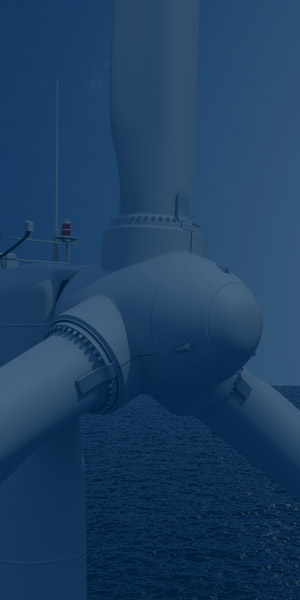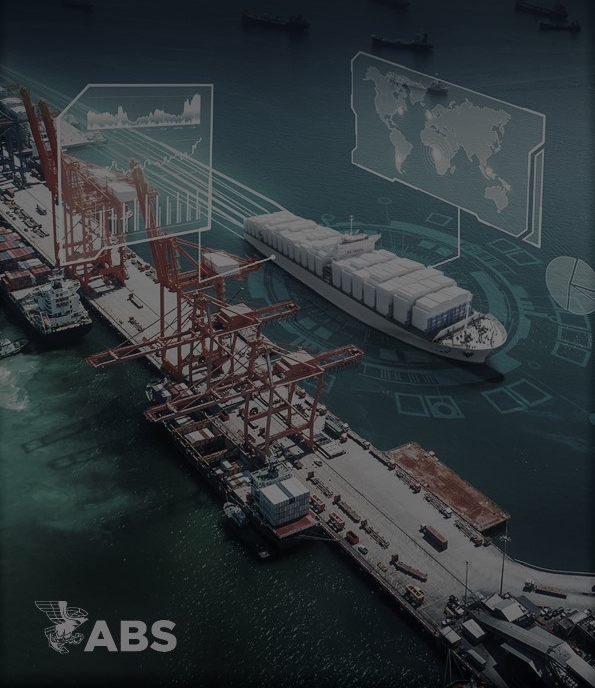Quick Links
- Rules and Resources
-
Services
Quick Links
Sustainability and Decarbonization- Energy Efficiency Existing Ship Index (EEXI)
- Sustainability Reporting and Assurance
- Simulation-based Energy Efficiency Evaluation Service (SIM EEE)
- Greenhouse Gas (GHG) Rating Improvement
- Greenhouse Gas Inventory and Carbon Accounting
- Carbon Capture, Utilization, and Storage (CCUS)
- Alternative Fuel Options
- Alternative Power Sources
- Marine Sustainability
- Offshore Sustainability
- Green Shipping Corridors
- Methanol Value Chain
- Gas
- Carbon Intensity Indicator (CII)
- Ammonia Value Chain
- Carbon Diligence Platform
- Innovation and Technology
-
News and Events
Quick Links
-
About
Quick Links
- Rules and Resources
- Services
- Innovation and Technology
- News and Events
- About Us and Careers
- Rules and Resources
- Rules and Guides
- Regulatory Updates
- Flag and Port State
- Engineering Software
- Engineering Reviews
- ABS MyFreedom™ Portal
- Databases
- Forms
- Services
- Classification
- Approval and Certification
- Company and Ship Audits
- Global Marine
- Global Offshore
- Global Government
- Sustainability and Decarbonization
- Digital Solutions
- Cybersecurity
- Maritime Training
- Innovation and Technology
- Technology Advancement
- Academic Engagement
- Industry Partnerships
- Data and Digitalization
- Knowledge Center
- About Us and Careers
- Who We Are
- Safety
- Careers
- Contact Us
Offshore Support Vessels
Decades of Experience With Specialized Offshore Support Vessels
ABS classed the first workboats to venture into the Gulf of Mexico in the early days of US offshore exploration and today classes roughly one-third of the world’s offshore support vessels (OSVs). We have decades of experience with specialized vessels including anchor handling, firefighting, dive support, pipelay, heavy lift, well intervention, well stimulation and oil spill recovery units.
As the search for oil and gas moves into deeper, more exacting environments, operators are contracting multipurpose OSVs as a cost-effective tool for carrying out specialized services on platforms, offshore facilities and piping equipment and systems. Today’s OSVs are carrying out inspection, maintenance and repair and are equipped with larger accommodation spaces, heavy lift cranes, helidecks and streamlined bow forms for harsh-environment operations.
At ABS, we recognize that advances in technology are opening new opportunities for the specialized vessel fleet. We anticipate developments in offshore vessel design, equipment and systems and are investing now in updating and expanding our guidance for these vessels so the industry can confidently continue to look to us for leadership.
Harvey Energy Tri-Fuel Vessel Shapes Future of Sustainability
The Harvey Energy will become the first ABS-classed dual fuel and battery vessel and the first U.S. flagged OSV equipped with a battery/converter system.
Harvey Energy Tri-Fuel Vessel Shapes Future of Sustainability
The Harvey Energy will become the first ABS-classed dual fuel and battery vessel and the first U.S. flagged OSV equipped with a battery/converter system.
Breaking Down Barriers to Operating in Harsh Environments
ABS knows the challenges of harsh operating environments offshore, and our engineers are working every day in our global headquarters in Houston and in our technology centers around the world to find solutions. Research initiatives are targeting jackup operations in ice-infested water, safe transit through the Northern Sea Route, adapting the Polar Code for Arctic drillships, developing a risk-based approach to winterization and nanotechnology research aimed at developing icephobic coatings that will prevent ice buildup on rigs operating in Arctic conditions.
ABS continues to examine the role of ice management in mooring system design, disconnection and reconnection devices, practical guidance on global ice load prediction, corrosion and coatings, environmental regulations and how the industry will train people to work safely in Arctic environments.
In every case, ABS is investing its resources to make sure class is in step with industry needs, helping find solutions that will allow the offshore industry to break down the technology barriers that constrain Arctic operations.

© 2024 American Bureau of Shipping. All rights reserved.



































